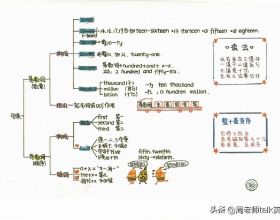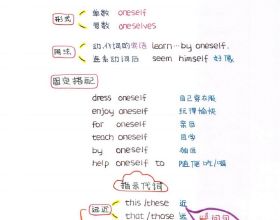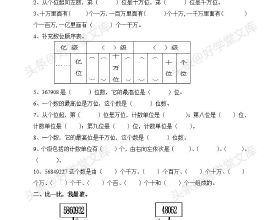新概念第四冊課文翻譯及學習筆記:Lesson34
【課文】
First listen and then answer the following question.
聽錄音,然後回答以下問題。
What do adolescents respect in parents?
Parents are often upset when their children praise the homes of their friends and regard it as a slur on their own cooking, or cleaning, or furniture, and often are foolish enough to let the adolescents see that they are annoyed. They may even accuse them of disloyalty, or make some spiteful remark about the friends' parents. Such loss of dignity and descent into childish behaviour on the part of the adults deeply shocks the adolescents, and make them resolve that in future they will not talk to their parents about the places or people they visit. Before very long the parents will be complaining that the child is so secretive and never tells them anything, but they seldom realize that they have brought this on themselves .
Disillusionment with the parents, however good and adequate they may be both as parents and as individuals, is to some degree inevitable. Most children have such a high ideal of their parents, unless the parents themselves have been unsatisfactory, that it can hardly hope to stand up to a realistic evaluation. Parents would be greatly surprised and deeply touched if they realized how much belief their children usually have in their character and infallibility, and how much this faith means to a child. If parents were prepared for this adolescent reaction, and realized that it was a sign that the child was growing up and developing valuable powers of observation and independent judgment, they would not be so hurt, and therefore would not drive the child into opposition by resenting and resisting it.
The adolescent, with his passion for sincerity, always respects a parent who admits that he is wrong, or ignorant, or even that he has been unfair or unjust. What the child cannot forgive is the parent's refusal to admit these charges if the child knows them to be true.
Victorian parents believed that they kept their dignity by retreating behind an unreasoning authoritarian attitude; in fact they did nothing of the kind, but children were then too cowed to let them know how they really felt. Today we tend to go to the other extreme, but on the whole this is a healthier attitude both for the child and the parent. It is always wiser and safer to face up to reality, however painful it may be at the moment.
DOTID OFLUM Journey Through Adolescence
【New words and expressions 生詞和短語】
adverse adj. 不利的
adolescence n. 青春期
slur n. 抵毀
adolescent n. 青少年(12-18歲)
disloyalty n. 不忠實
spiteful adj. 惡意的,懷恨的
dignity n.端莊,高貴,尊嚴
disillusionment n. 幻滅感
evaluation n. 評價
infallibility n. 一貫正確
resent v. 怨恨
sincerity n. 誠摯
victorian adj. 維多利亞式的
retreat v. 後退
unreasoning adj. 不憑理智的
authoritarian adj.專制的
cow v. 嚇唬
【課文註釋】
1.slur n. 誹謗, 恥辱, 汙點, 汙跡
例句:He took the remarks as a slur on his reputation.
他把這些話當作是對他的名譽的中傷。
She had dared to cast a slur on his character.
她竟敢對他的人品加以詆譭。
2.spiteful adj. 惡意的, 懷恨的
例句:Walter's spiteful remarks were quite uncalled for.
沃爾特惡意的話完全是多餘的。
He had been a spiteful sort of man.
他是一個善於懷恨的男人。
3.descent n.
①下降, 下坡
例句:There was a descent of temperature after rain.
雨後氣溫下降了。
②家世, 血統
例句:He traces his descent back to an old norman family.
他追蹤自己的世系上溯至一個古老的諾曼家族。
4.on the part of 在......一邊
例句:Contentment, on his part, took no vulgar form.
就他而言,滿足從來沒有以庸俗的方式表現出來。
5.resolve v.
①決定
例句:He resolved that nothing should hold him back.
他下決心不讓任何事情阻擋他。
②解決
例句:Intensive efforts are being made to resolve the dispute.
現正全力以赴來解決這場糾紛。
③分解
例句:We can resolve the problem into more elementary items.
我們能夠把這個問題分解成更基本的細目。
【詞義辨析】
decide, determine, resolve, settle 這些動詞都含“決定”之意。
decide: 側重指經過思考、比較、討論或詢問之後做出的決定。
determine: 指經過深思熟慮,決心去做某事並堅持施行。
resolve: 語氣較強,強調以堅定不移的信念去做或不做某事,暗含有遠大抱負和堅強決心。
settle: 指排除猶豫、懷疑和爭論之後作出明確的最終結論。
resolution, decision, determination, resolve 這些名詞均含“決定、決心”之意。
resolution: 指自覺地正式表示的決心,含極強的主觀能動意味,比如new year's resolution。
decision: 既可指重大的或一般的決定或決心,又可指在多種情況下作出果斷的抉擇,毫不猶豫地採取行動。
determination: 側重堅定不移的頑強意志力。
resolve: 語氣較強,強調克服感情上的軟弱,下決心幹具體的一件事。
solve, resolve 這兩個動詞均含“解決”之意。
solve: 普通用詞,含義廣,指為有一定難度的問題找到滿意的解法或答覆。
resolve: 主要指對問題或情況進行細微的分析或思索,以得出結論或解決途徑。
6.they have brought this on themselves 他們是咎由自取
7.stand up to 經得起
例句:That is why they cannot stand up to any serious test.
這就是為什麼他們經受不住任何嚴重的考驗。
Will this car stand up to winter conditions here?
這汽車經得起這兒冬天的氣候條件嗎?
8.retreat v. 撤退,後退
例句:After several reverses the enemy was forced to retreat.
幾經失敗之後,敵軍被迫後撤。
9.cow vt. 恐嚇,嚇唬
例句:The generals tried to cow opposition to their military rule by imprisoning their
leaders.
這些將軍透過監禁領導人來威嚇反對軍事統治的人。
10.face up to 正視
例句:He must face up to the fact that he is no longer young.
他應該勇於正視自己不再年輕這一事實。
【參考譯文】
當家長聽到孩子讚揚自己朋友的家時,總感到不安,認為孩子在嫌棄自家的飯菜、衛生、或傢俱,而且愚蠢地讓孩子看出自己的煩惱。他們甚至責備孩子不忠,或者講些小朋友家長的壞話。家長這種有失身份和孩子氣的作法使青春期的孩子大為震驚,決心以後不再向父母講述去過的地方和見過的人。不要很久,家長就會抱怨孩子守口如瓶,什麼事也不告訴他們,殊不知這是他們自找的。
不管家長的人品有多麼好,作為父母有多麼合格,孩子們對家長幻想的破滅在某種程度上是不可避免的。除非父母自身不能令人滿意,大多數孩子對父母估價過高,以致這種估價很難指望經受住現實的考驗。如果家長意識到孩子們通常是多麼相信家長的品行和絕對正確,意識到孩子們的這種信念會對孩子產生多麼大的影響,那麼家長會大為吃驚和深受感動的。如果家長對青少年的這種反應有思想準備,並且意識到這象徵著孩子們正在成熟和正在發展寶貴的觀察力、獨立判斷力,那麼他們就不會那樣傷心,也就不會由於怨恨和牴觸這種反應,而把孩子推到自己的對立面去。
青少年酷愛真誠,對於能夠承認錯誤或無知、甚至承認自己做得不公平或不公正的父母,他們總是尊敬的,孩子們所不能原諒的是:父母錯了,孩子們也看出來了,可是做父母的還不肯承認。
維多利亞時代的父母認為,他們可以靠無理的權威氣派來維護自己的尊嚴,實際上那是根本不行的。孩子們只不過被嚇得不敢讓父母知道自己的想法罷了。雖然現在我們傾向於走向另一個極端,但總地來看,孩子和家長雙方態度都比較端正。遇事採取面對現實的態度總是比較明智和穩妥的,儘管會有暫時的痛苦。














